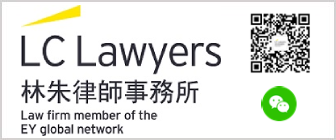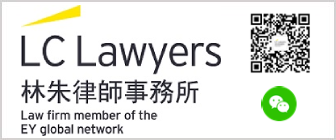Rossana Chu (Managing Partner)
Email: rossana.chu@eylaw.com.hk
Jacky Chan (Associate)
Email: jacky-ch.chan@eylaw.com.hk
In our previous article1, we introduce the principles on sustainable finance products formulated by the International Capital Market Association (ICMA). We will discuss here how the principles are applied in Hong Kong listed bonds.
Green and sustainability bonds listed in Hong Kong
As of 10 May 2022, the Hong Kong Stock Exchange included 94 bonds in its “Sustainable Finance Products” bond repository2, out of which 79 issuances are categorized as green bonds. The other categories are 2 social, 1 sustainability, 3 sustainability-linked, 2 blue, 6 transition and 1 COVID-19 bonds.
Each of green, social, sustainability and sustainability-linked bond, note or not programme, is subject to a bond framework or management statement developed by the issuer for the bond. The framework should be in accordance with the relevant set of ICMA principles. Now let us look at the typical uses of proceeds of these bonds.
Green bonds
Out of the 79 green bonds or programmes listed in Hong Kong, 31 were issued by financial institutions, mostly banks. The uses of proceeds generated from green bonds issued by banks are for financing and/or refinancing the “eligible” green assets or projects, e.g. energy conservation and efficiency, renewable energy, green buildings, clean transportation, pollution control, and environmentally sustainable management of living natural resources and land use. The eligibility varies in different bonds but is accordance with the green project categories set out in the Green Bond Principles of ICMA. Some China-based banks refer to the Catalogue of Projects Supported by Green Bonds (绿色债券支持项目目录), issued by the People’s Bank of China, for determining eligibility. Also, certain purposes are often excluded, e.g. fossil fuel, carbon intensive or nuclear fuel related projects, or activities connected with any luxury sector, spirits, tobacco and gambling.
Amongst the 39 green bonds issued by corporations, common issuers are property developers and public utilities companies. They are in sectors identified as consuming high amounts of energy and thus are more motivated to enhance their green efforts. Typical uses of bond proceeds for property developer issuers are green buildings, energy efficiency improvement, pollution control and water management.
Nine green bonds are issued by the Hong Kong Government under the Government Green Bond Programme launched in 2019. Please refer to our earlier article titled “ESG series – Hong Kong Government Green Bond Programme“3 if you would like to know more about that programme.
Social bonds
The two social bonds were issued by the Macau branch of the same China-based bank. In fact, each bond is a sustainability series bond combining the features of green, social and sustainability bonds. Thus, the management statement aligns with the Green Bond Principles, the Social Bond Principles and the Sustainability Bond Guidelines of ICMA. The net proceeds will be allocated to fund eligible projects in the typical green categories and also social projects such as affordable basic infrastructure (e.g. clean drinking water, sanitation, transport), access to essential services (e.g. health, education) and affordable housing which meet the local policies.
Sustainability bond
The bond categorized as sustainability bond was issued by the Hong Kong branch of a China-based bank. In fact, the proceeds can be used for either financing eligible green projects or eligible social projects. The latter may involve employment generation through small and micro-enterprises financing, affordable basic infrastructure as well as access to essential services.
Sustainability-linked bonds
One sustainability-linked bond is issued by a Hong Kong based property developer. The net proceeds from the bond will be used as general corporate purposes for the issuer group. The issuer sets the percentage of renewable energy in its rental properties in the Greater Bay Area of China as the key performance indicator (KPI). Such percentage was less than 1% in the baseline of the financial year 2019/2020, while the issuer’s sustainability performance target (“SPT”) is to reach 100% by the financial year 2025/2026. If such target cannot achieved by then, the issuer group will make a purchase of carbon off-sets equivalent to a 0.25% increase in the coupon of the sustainability-linked bond for the remaining life of the bond until it is fully redeemed. This does not lead to a financial benefit to the investors but creates an environmental benefit because it increases the funding cost to the issuer.
The other two sustainability bonds were issued by the Hong Kong branch of the same China-based bank. Each is a combined green, social, sustainability and sustainability-linked bond. The bond framework underlying each bond is in line with the Green Bond Principles, the Social Bond Principles and the Sustainability Bond Guidelines of ICMA. For any sustainability-linked bond to be issued under the framework, the bank will define the KPIs according to its prevailing sustainable development strategy. It will calibrate the selected SPTs in terms of their consistency with its sustainable development strategy, its plans to meet the SPTs, the relevant controls and other critical factors. Each sustainability-linked bond will carry the variation of its financial and/or structural characteristics if any SPT is not met.
Key takeaway
While bonds listed in Hong Kong following the ICMA principles, it is important to follow how the issuers apply the proceeds and disclose the impacts of such bonds to achieve the sustainability objectives. As ICMA stresses, the transparency, accuracy and integrity of the information to be reported by issuers to stakeholders play a core role in the success of the finance products.
1https://www.eylaw.com.hk/en_hk/publications/our-latest-thinking/2022/may/principles
2https://www.hkex.com.hk/Join-Our-Market/Sustainable-Finance/HKEX-STAGE/Product-Repository?sc_lang=en
3https://www.eylaw.com.hk/en_hk/publications/our-latest-thinking/2022/march/greenbond



